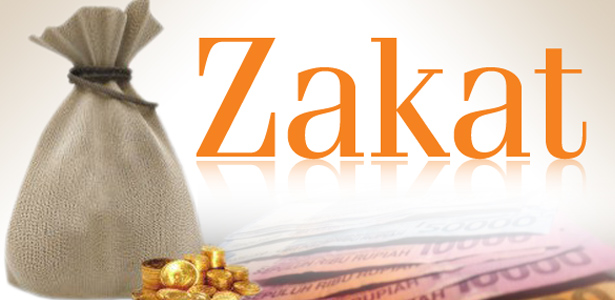How Zakat crowds out social evils
Zakat literally means purification. Technically, it is an amount given by a well-to-do Muslim who possesses the minimum threshold to the identified categories of recipients as mentioned in Qur’an 9:60. Zakat is associated with salat in more than 30 verses of the Qur’an. It is the third pillar of Islam which represents economic aspect of […]

Zakat literally means purification. Technically, it is an amount given by a well-to-do Muslim who possesses the minimum threshold to the identified categories of recipients as mentioned in Qur’an 9:60. Zakat is associated with salat in more than 30 verses of the Qur’an. It is the third pillar of Islam which represents economic aspect of Islam. Zakat encourages pursuing economic activities in various sectors of the economy such as trade, agriculture, industry, and services. Thus, emphasis is not only on taking zakat from rich, but making the rich to invest more and generate legitimate profits and grow their wealth. Impliedly, zakat will not only eat up the non-invested wealth but will also increase the zakat proceeds thereby alleviating the sufferings of the poor and other beneficiaries.
Allah says in the Qur’an “take, (O Muhammad), from their wealth a charity by which you purify them and cause them increase and invoke (Allah’s blessings) upon them. Indeed, your invocations are reassurance for them. And Allah is Hearing and Knowing”.
This verse clearly shows the various significance of zakat in terms of worship, administrating and the inherent blessings that come with it. The Prophet PBUH says “Take wealth from the rich and turn it over to the poor.” As stated earlier, there is minimum threshold of zakat in various sectors. Generally, zakat on gold and silver (money) is 2.5 percent. Payment of Zakat certainly has social and economic significance in the society especially in developing countries like Nigeria.
Firstly, it plants love and cooperation between the haves and have-nots of the society. Through the payment of zakat, the poor feels the love and generousity of the rich, and potential hatred is eliminated in the process replaced by caring and cooperation. The poor will now pray for the rich and the blessings continue to manifest in the society.
Secondly, payment of zakat reduces the unwanted wealth concentration among the few rich individuals in the society, thereby bridging the gap between the rich and the poor. This way, coupled with the multiplier effect of private spending, trade and commerce will be advanced and economic prosperity will be resulted. Allah says in the Qur`an “…so that wealth will not circulate among few riches among yourselves” (Q: 59: 7).
Thirdly, there will be smoothening consumption and regulating, if not eliminating the cyclical effects of business cycle. This is more realizable where institutional zakat collection and distribution is advocated such as in the South East Asian countries. Yusoff (2009) views that zakat can be used as a fiscal measure to control recession or to boost the economy. Thus, expansionary zakat policy would be applied during recession while contractionary zakat policy would be adopted in the boom period.
Fourthly, zakat is a reliable means of eradicating poverty. The system provides permanent mechanism from within the economy to continuously transfer income from the rich to the poor and that once correctly assessed, promptly collected and properly disbursed, it plays the role of solving dangerous problems such as poverty, unemployment, catastrophe, indebtedness, drugs abuse, kidnapping and ensures equitable income distribution in a the society. It is also a self-help measure adopted with full religious backing to support those poor and destitute who are unable to help themselves so as to alleviate misery and poverty from Muslim society.
Unfortunately, the neglect on this vital institution by the government, and the Muslims rich has devastating effect in the society as we are witnessing today. Youth unemployment, drug abuse, kidnapping, street begging, depression, indebtedness, domestic violence, are more or less linked to social disconnect between the haves and have-nots. Underneath is the issue of redistributive justice which zakat provides an effective mechanism to achieving that.
Islam emphasises wealth circulation in the society. In fact, the parable of wealth and its circulation in a society is like the role of blood in a human body. If it circulates well, one is healthy, otherwise one could be dead or at least be paralysed. Thus, zakat has great role to play in providing sustainable means of survival for many families in the rural and urban areas.
Ironically, the zakat realised from some Nigerian states’ agencies from 2009 to 2015 was N7 billion only. However, Islamic Social Finance Report (2015) of the Islamic Development Bank Jeddah, shows that zakat can easily be used to fight poverty on USD1.25 per dollar. The data shows that zakat potential in Nigeria reaches up to 2.08 percent of GDP while resource short fall stands at 1.47 percent of GDP. This calls for policy-makers and other rich Muslims to consider in earnest this Islamic social finance instrument to provide social stability and crowd out social evils in the society.
Dr. Muhammad wrote in from International Institute of Islamic Banking and Finance, Bayero University, Kano.
